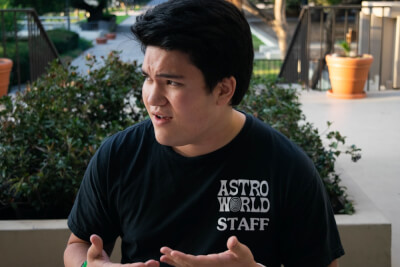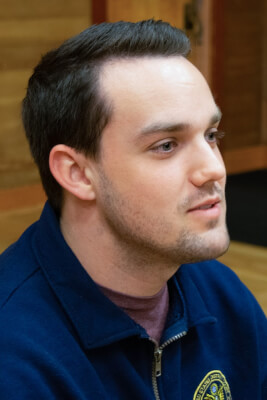
The Conservatives of Occidental student club has disbanded this year due to low membership, according to Max Woods (senior), the former vice president of the club. Woods said that while club membership levels always fluctuated in the past, they noticeably declined after the election of President Donald Trump in 2016.
“The reason we don’t have a club is just that the amount of people I know who actually are conservative or Republican or libertarian has dwindled over the course of the years,” Woods said. “I couldn’t take the full responsibility of the entire club.”
According to Niche.com, a college ranking site, Occidental is the 36th most liberal college in the U.S.
Woods said he has considered transferring schools a few times, partly due to the school’s political climate.
“Personally, I think that if someone comes to Occidental who is conservative, the general trend is most of the time you keep quiet and you transfer out,” Woods said. “It’s not because people are shut down or socially ostracized. The reason is that they don’t feel welcome, because if you’re the only Republican out of your group of friends, your 30 friends or 20 friends, you don’t have anyone to relate to and it can be kind of hard.”

Bethany Widen (sophomore), a member of the Occidental College Democrats student club, said she hopes that students with conservative ideas can find ways to build community with each other.
“I believe I can speak on behalf of the Oxy Democrats club when I say that we hope to engage in and promote meaningful and respectful political discourse with everyone on campus, regardless of party affiliation,” Widen said via email.
Woods said that in his sophomore year, the Conservatives of Occidental had around 70 members and about 25 or 30 who attended meetings regularly. He also said that members of the Occidental College Democrats often came to meetings. After President Trump was elected, Woods said the number of members decreased.
“Of course, when Trump was elected, it became a lot less popular to be conservative, especially on campus,” Woods said. “A lot of the time, people either completely changed parties or ideologies or they just became more quiet.”
David Frost (sophomore), a former member of Conservatives of Occidental, said that he was a Bernie Sanders and Hillary Clinton supporter in high school, but that his political views became more conservative in college. Frost said that the political discussions he sees on social media platforms like Twitter and Facebook make him hesitant to talk about politics publicly.

“I’m thoroughly afraid. I’m always wanting to have a civil discussion. I just don’t need emotion,” Frost said. “The polarization between both sides is pretty bad, to be honest. I don’t really care what you believe in, I just want it so all ideas can be exchanged freely.”
Frost said he rarely discusses his political opinions in the classroom and thinks certain professors present an incomplete view of political issues, especially of conservative views.
According to Woods, the majority of people on campus are accepting of differing political ideas. Since he is well-known for being conservative, Woods said that many people ask him about his political opinions because they don’t hear conservative voices elsewhere on campus. He said that he thinks the admissions process should take political ideas into consideration in order to create a diversity of political opinion on campus.
“I think that admissions should go towards making it more regionally diverse at this school and try recruiting people from all over the country … I think that would be really cool, and I think a side effect would be more political diversity,” Woods said. “It’s more about bringing America together and making it feel like a smaller country than it is.”
Vince Cuseo, vice president of enrollment and dean of admission, said that most students do not indicate their political affiliation in their application, implicitly or explicitly.
“The application process, again, is certainly not designed to segment students by political persuasion, nor does that matter ultimately in our application process,” Cuseo said. “There’s a lot of self-selection that goes on, so by the time somebody even applies to any particular college — and I’m not just talking about Occidental — they’ve already made some choice about environment and community.”
Cuseo said that the admissions process is individualized, and so it becomes hard to make generalizations about the political views of students coming from different areas of the country. He said that an increased focus on regional diversity would not necessarily impact the political composition of campus, especially since students are typically attracted to colleges that provide a comfortable environment for them, politically and otherwise.
Both Woods and Frost said that they believe the polarization of national politics has impacted political discourse on Occidental’s campus.
“I think the radicalization of both sides is very prevalent, and I find it kind of disgusting. There needs to be rational thought,” Frost said.
Woods said he thinks the current political climate leads to people becoming more politically active. The increase in youth voting in the 2018 midterm elections was an example of this, according to Woods.
“Young people have the incentive to go out and make a change,” Woods said. “You always have a right to your voice, and you should be heard if you want to be heard.”
![]()


































